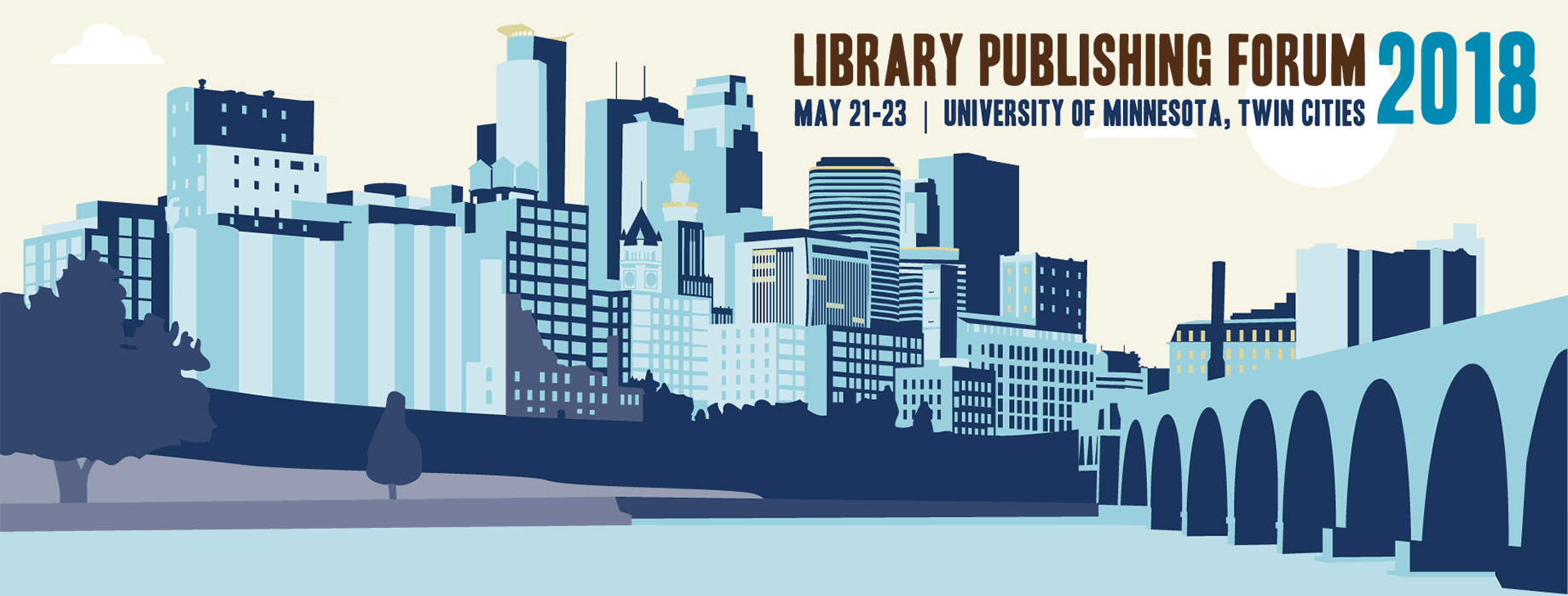Tuesday, May 22, 10-11:00am
Room: Ski-U-Mah Room
Charting the New Frontier in Library Publishing: Using Janeway as an Open-Source Library Publishing Platform
David Scherer, Rikk Mulligan, and Dan Evans, Carnegie Mellon University
Description: As the current institutional repository and publishing landscapes evolve, libraries must assess, adopt, and adapt the tools and platforms available to provide their library publishing services. Additionally, as options in both the vendor-hosted and open-source solution markets evolve and become available, library publishers should strike a balance between adopting and/or adapting solutions that will best meet the needs of their service models and communities efficiently and cost effectively. Beginning in 2017, Carnegie Mellon University began to transition its institutional repository service from Digital Commons to Figshare. Although the new repository service would expand features by also offering a data repository, this would leave Carnegie Mellon without a suitable publishing platform. While satisfied to use a hosted solution for its repository, the University Libraries wanted to diversify its dependence on vendor-hosted platforms by implementing an open-sourced publishing solution to be organizationally maintained by its new center for Digital Sciences, Humanities, Arts: Research and Publishing, dSHARP.
Recently developed by the Centre for Technology and Publishing at Birkbeck, University of London, the Janeway publishing platform is an open-sourced journal management system. This session will discuss how the need to evaluate hosted and open-sourced solutions for institutional repositories and publishing platforms, how the decision was made to proceed with an open-sourced platform, why Janeway was chosen, and how Carnegie Mellon is using it as their choice for library publishing. Attendees can also expect to hear why the publishing platform will be organizationally owned by dSHARP, how dSHARP is implementing Janeway, and how dSHARP has started to develop its library publishing service model with the development of several early projects, including the Carnegie Mellon Encyclopedia of Science History (CMESH).
#pubfrontiers
Reaching Public Library Audiences with the DPLA Exchange
Michelle Bickert, DPLA
Description: The growth of e-reading technology and the push for open content allows publishers to reach audiences previously unreachable due to physical or financial barriers. Yet this advancement in accessing information is complicated by non-library vendors, proprietary platforms, and confusing licenses, which can create more barriers. DPLA is working with academic libraries and university presses on making open content available alongside traditionally licensed e-content for public library acquisition. Open Bookshelf, part of the DPLA Exchange, offers ebooks at no cost, with no holds or checkouts, to participating libraries, allowing them to share openly published content with their patrons without restriction. Readers will find the best fiction and nonfiction from a variety of content creators and distributors, all in one user experience.
Evolution Through Collaboration: Exploring Participatory Change in a Library Publishing Program
Matt Ruen and Jacklyn Rander, Grand Valley State University Libraries
Description: At Grand Valley State University, staff from the library publishing program, special collections and archives, and technology services are collaborating to rethink and merge our support for functionally-similar activities. Our evolution is rooted in participatory management methods–organizational change emerging from the bottom up, rather than change directed from the top down.
In this short presentation, we explore the framework and processes which enabled our collaborative journey towards a new organizational structure. We will share an overview of participatory change management approaches and dive deeper into one model, Appreciative Inquiry, from a library publishing perspective. We will also discuss lessons learned and themes which emerged from our experiences implementing a participatory approach to organizational change.
